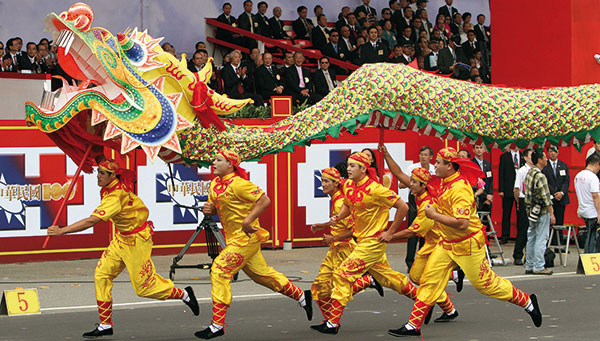Smooth relations
Doing business in the Middle Kingdom, effectively managing relations with reps, customers, suppliers and co-workers. ItaliaImballaggio proposes a series of information and analyses (drawn up by Alessandro Zaccarini, expert in Italo-Chinese relations) on the main negotiation tactics and the modes of the typical relations between entrepreneurs and “local” managers. Offering relative advice on how to best tackle negotiations. This month: the importance of personal relations.
In China business is done not between two organizations, but between two people. Obviously, the reputation of a company, especially if it is foreign, is seriously taken into consideration and can be the reason behind the first contact. The quality of the product, its technical sophistication are equally points of interest but, in the end, the decision in terms of purchases of a certain importance (and buying products or machines from abroad always comes under this category) are taken in virtue of the quality of the relations that are set up by the persons involved.

From appearances to substance
Once again, we shall examine the commonest of situations.
a) Each time an Italian delegation visits a Chinese customer, sumptuous dinners are organized, to which generally local government officials are also invited and where the intention to cooperate is underlined several times, between one toast and another.
b) The Chinese customer insists that his Italian supplier prolongs his stay and that customer takes it upon himself to organize visits to the most beautiful and representative areas of the region.
Western businesspeople are often wrong-footed by the extremely friendly attention and behaviour and don’t know how they ought to behave: accept or not? What is to be expected from such extreme conviviality, very rare in the West? American companies, that generally speaking have very rigid guidelines as to how their people should behave during business visits – so as to forego any possibility of corruption – are often hard put to accept the invitations to sumptuous dinners, even more so, moments of relax: basically, one has gone to China to talk business.
It is not infrequent that misunderstandings occur. The supplier, flattered by the attention, thinks he has made a breach in the Chinese team and believes he has managed to setup up relations of true friendship with his/her Chinese contact, often crudely overrating his or her own appeal and knowledge of the Chinese reality. Hence one should bear in mind that behaving as hosts, satisfying the foreign guests’ every need, is part of the Chinese culture and mentality.
The invitation to visit tourist spots and interesting historic sites of a given area is seen as a duty towards the guest who has come from afar. As mentioned, the emphasis on the construction of personal relations means the organisation of an evening rich in events that often goes on until late at night (from a fine dinner in a restaurant one then goes to a discotheque or a karaoke.) This is all seen as part of the relations with a business partner. And this is how these activities are to be understood; the advice is to always accept these invitations, the way one would accept those of normal business meetings. One should understand that receiving these invitations is a clear signal: the customer seriously wishes to work with the supplier. If this was not the case, the Chinese operator would limit relations to working day and company meetings. Once one has accepted the invitations, one can always decline (gracefully and with good manners obviously) to drink till one falls over and to sing the complete repertoire of Michael Jackson in karaoke; all the same taking part in the activity is a positive sign, that helps to create the right atmosphere and allow the human relations with the suppliers’ reps to develop that are so important to the Chinese.
All that glitters is not gold
One should though consider one fact: striking up personal relations that are deeper compared to the custom in Europe is considered a great opportunity to make additional pressure on the supplier and thus obtain more concessions, in the name of a by now consolidated friendship. Close to the signing of the contract, for example during a dinner, it may happen that you are taken to one side and receive a number of demands: to make a further effort to lower the price, improve the payment conditions or again, offer a technical solution that is more advanced under the same economic conditions.
In this case too, the best way of tackling a situation of this kind is to prepare in advance.
Knowing how to play ones cards
One has to be aware of the fact that, after the official negotiations in the office and in the presence of a large number of department heads, there could be another round of negotiations, this time more private and not based on objective elements like the technical characteristics of the machine. An encounter to clear things up, aimed at obtaining a further concession that simply levers on the will to take advantage of the close relations that have been struck up, not between the two companies, but between two or more people. My advice is in this case is to always keep “an ace up ones sleeve”: a small price reduction, a slight improvement in the sales conditions, an extension of the guarantee on the product or a certain number of spare parts supplied without raising the price
An approach of this kind also helps to remind the Chinese partner that the relations set up between the people in a team have to be based on principles of cooperation. At this point one can remind the customer of all the concessions already made and the costs sustained, reminding the person you are negotiating with that relations between “old friends” (as the Chinese love to call their business partners) means a relationship of give and take on both sides.
| Alessandro Zaccarini, born in 1969 in Milan, has lived for over ten years in Peking, where he works with local and foreign companies as an interim manager and consultant in the field of employee relations. Having earned his degree in mechanical engineering at the Politecnico di Milano, followed by a specialization in automotive engineering at the University of Stuttgart, he studied Chinese economic history at Cambridge (UK) and Peking University. After his studies, he first worked as a project manager, then as a general manager, for some major enterprises in the automotive, chemical, mechanical and packaging machinery sectors, at posts held in Germany, South Korea, Japan (for 4 years) and, since ’03, in China. In addition to Italian, he speaks and writes fluent German, English and Chinese. |
Memorandum. The articles by Alessandro Zaccarini published in ItaliaImballaggio starting from June 2013, can be consulted on our website www.dativoweb.net.
A reminder of their titles: “Planet China”, “The right contact”, “Doing and undoing… to get to ones goal”.



















